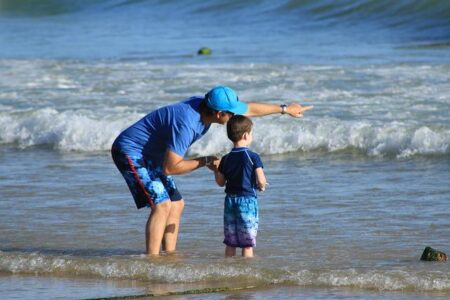A recent study highlighted in an ESPN report has uncovered a troubling link between aggressive fan behavior and the mistreatment of NCAA athletes. Termed “angry bettors,” these fervent sports gamblers are increasingly implicated in creating a toxic environment that contributes to athlete abuse within collegiate sports. The findings raise urgent questions about the impact of gambling culture on the well-being of young athletes and call for stronger measures to protect them from psychological and emotional harm.
Angry Bettors Identified as Key Drivers Behind Increased Abuse of NCAA Athletes
Recent research highlights a troubling dynamic within collegiate sports: bettors driven by frustration and anger are significantly influencing the rise in abusive behavior directed toward NCAA athletes. These “angry bettors” often react violently when outcomes fail to align with their wagers, creating a hostile environment that extends beyond online forums and social media to more direct forms of abuse. The study points out that this hostility not only affects athletes’ mental health but also undermines the integrity and enjoyment of college sports as a whole.
Experts emphasize the multifaceted nature of the problem, identifying key factors that exacerbate abuse:
- Emotional Investment: Bettors with high financial stakes tend to lash out more aggressively when losing their bets.
- Lack of Accountability: Anonymous online platforms enable abusive comments without repercussions.
- Social Influence: Peer pressure within betting communities amplifies toxic behavior.
| Type of Abuse | Percentage Reported | Source |
|---|---|---|
| Verbal Threats | 45% | Player Surveys |
| Online Harassment | 60% | Social Media Monitoring |
| Physical Intimidation | 12% | Incident Reports |
Emotional Outbursts and Betting Losses Fuel Hostile Behavior Toward College Athletes
Emotions run high in the world of sports betting, particularly when real money is on the line and expectations are shattered. Recent studies reveal that a significant portion of hostile incidents directed at NCAA athletes stem from frustrated bettors dealing with unexpected losses. This emotional volatility often manifests as verbal abuse, threats, and in some cases, online harassment aimed at players who inadvertently become the focal point of bettors’ anger. The intensity of these reactions escalates during critical games or unexpected upsets, underscoring the fragile psychological relationship between sports fandom and gambling.
Data collected over a three-year period indicates a strong correlation between betting losses and the frequency of abusive messages targeted at college athletes. Insights from the study highlight:
- 75% of athlete-targeted hostility spikes occur after major betting upsets.
- 60% of abusive communications originate from accounts linked to known betting activity.
- Online platforms are the primary channels for these hostile exchanges.
| Incidence Type | Percentage Occurrence |
|---|---|
| Verbal Abuse (Social Media) | 68% |
| Threatening Messages | 22% |
| Physical Confrontations | 10% |
Experts Call for Enhanced Security Measures and Mental Health Support in Collegiate Sports
Recent investigations have highlighted how “angry bettors” – fans frustrated by gambling losses – are increasingly linked to hostile behaviors toward NCAA athletes. Experts argue this alarming trend underscores the urgent need for strengthened security protocols at sporting events and on campuses. Athletic departments are being urged to install more comprehensive surveillance systems, increase the presence of trained security personnel, and implement rapid response strategies to protect athletes from harassment or physical threats exacerbated by gambling-related tensions.
Alongside physical safety, mental health professionals emphasize the importance of holistic support frameworks tailored to athletes coping with external pressures driven by betting culture. These include:
- Accessible counseling services specializing in stress and anxiety related to fan interactions
- Regular workshops on coping mechanisms for gambling-driven hostility
- Peer mentorship programs fostering community resilience
To illustrate the immediate benefits of these initiatives, a recent pilot program at a major university reported the following improvements within one semester:
| Support Measure | Reduction in Incidents | Improvement in Athlete Well-being (%) |
|---|---|---|
| Enhanced Security Patrols | 40% | – |
| Mental Health Workshops | – | 35% |
| Peer Mentorship | 20% | 25% |
Recommendations Urge Stronger Regulation of Sports Betting to Protect Athlete Well-Being
In light of mounting evidence linking aggressive sports betting behaviors to increased pressure on NCAA athletes, experts are calling for a comprehensive overhaul of current regulatory frameworks. The study highlights that the lack of stringent oversight allows “angry bettors” to indirectly contribute to the mental and emotional strain experienced by student-athletes. Industry stakeholders, including universities and sports commissions, are urged to implement measures such as:
- Mandatory monitoring of betting patterns around collegiate games
- Enhanced education programs to raise awareness among athletes about betting-related risks
- Stricter penalties for individuals and organizations promoting illegal or manipulative betting operations
Stakeholders believe that these steps could significantly curb the adverse psychological effects tied to gambling-related confrontations faced by athletes. A recent comparative analysis reveals the correlation between the scale of unregulated betting markets and reported abuse cases:
| Region | Unregulated Betting Volume | Reported Athlete Abuse Incidents |
|---|---|---|
| Midwest | $120M+ | 45 |
| South | $95M+ | 38 |
| West Coast | $150M+ | 60 |
Advocates emphasize that without a proactive regulatory response, the well-being of collegiate athletes may continue to be compromised, ultimately imperiling the integrity of NCAA sports.
The Conclusion
As the conversation around NCAA athlete welfare continues to evolve, this study sheds critical light on the often-overlooked role of aggressive bettors in fueling abusive environments. Understanding these external pressures is essential for stakeholders aiming to protect athletes and promote a culture of respect and fairness in collegiate sports. Moving forward, policymakers and institutions must consider these findings to implement more robust safeguards against abuse and ensure the well-being of student-athletes remains paramount.





